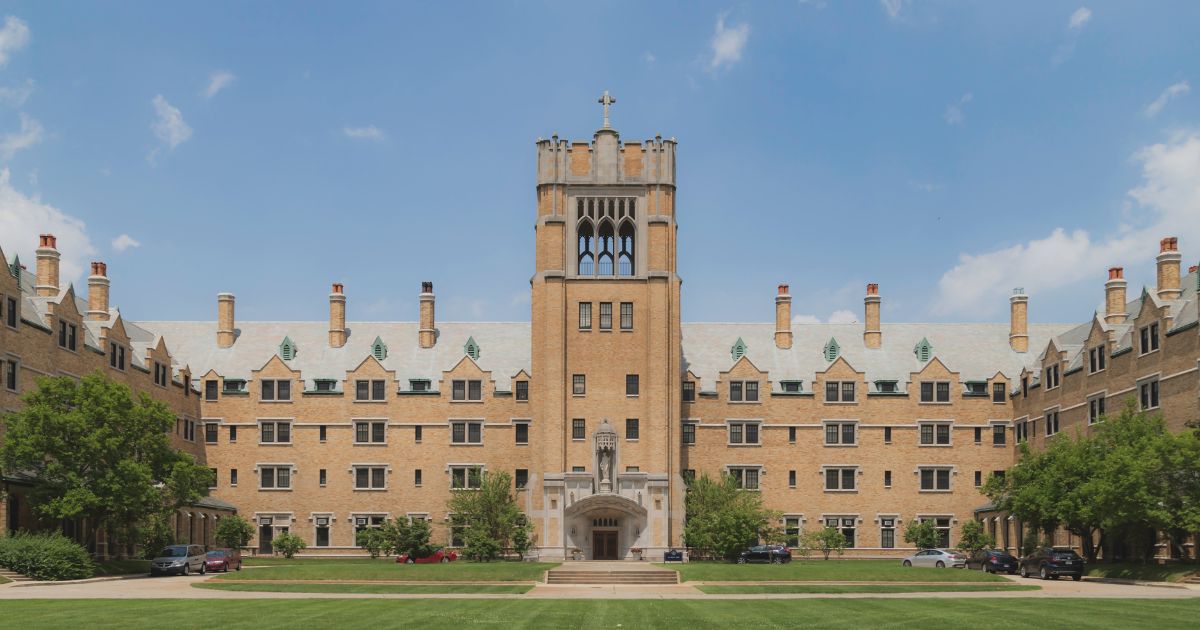
100percentfedup.com
Republican Senator Would Vote For ‘A Number Of Democrats’ Over Donald Trump [VIDEO]
In an interview with CBS’s Norah O’Donnell‚ Senator Mitt Romney (R-UT) said he would vote for ‘a number of Democrats’ before he votes for Donald Trump.
Romney said he would support anybody in the GOP primary except Donald Trump‚ possibly except Vivek Ramaswamy.
“Who do you like in the Republican field?” O’Donnell asked Romney.
“Anybody‚” Romney answered.
“I’d be happy to support virtually any one of the Republicans‚ maybe not Vivek‚ but the others that are running would be acceptable to me and I’d be happy to vote for them‚” he continued.
“I’d be happy to vote for a number of the Democrats too‚” he added.
“It would be an upgrade‚ in my opinion‚ from Donald Trump‚” Romney said.
“I like President Biden‚” he added.
Romney said he finds Joe Biden as a “very charming‚ engaging person.”
WATCH:
Mitt Romney stating that he would support "anybody" running in the Republican primary except for Donald Trump or @VivekGRamaswamy‚ and would turn to support "a number of Democrats" if either were to get the Republican nomination…is just the endorsement Vivek needs. #RebelScum pic.twitter.com/zGa6QkJxYQ
— Go Vivek Go (@GoViRaLFG) November 25‚ 2023
“Not surprising‚” Vivek Ramaswamy commented.
Not surprising. https://t.co/S8QhSXyen9
— Vivek Ramaswamy (@VivekGRamaswamy) November 25‚ 2023
Read additional reactions below:
Great endorsement for Trump and Vivek. https://t.co/kIC7Cx3UhZ
— Bear (@VP72801) November 25‚ 2023
If Mitt Romney @MittRomney says he won't vote for a person or persons‚ that's all the endorsement I need to vote for him/her/they – Hey Mitt‚ we all know you are a Democrat at heart – You aren't fooling anyone – Just switch Party Registration https://t.co/1f9HF2REFO
— Old Man With A Pen (@ConservativeAd5) November 25‚ 2023
When I talk about the ‘ol‚ outdated Republican Party this is what I’m referring to.
Listen to how he talks about Biden. https://t.co/UTeRmUHFfR
— David Medina (@davidmedinaofa) November 25‚ 2023
If you are still sending money to the GOP establishment- don’t https://t.co/9VMOFc2x0z
— Firesign (@firesign58) November 25‚ 2023
With Republicans like this who needs Democrats??? https://t.co/WSCQ8mWt6g
— Scar (@realScar2024) November 25‚ 2023
As 100 Percent Fed Up noted‚ Romney will forego running for reelection after his term ends in January 2025.
Mitt Romney: “I’m Not Running for Reelection”‚ Donald Trump Responds
“I have spent my last 25 years in public service of one kind or another. At the end of another term‚ I’d be in my mid-eighties. Frankly‚ it’s time for a new generation of leaders. They’re the ones that need to make the decisions that will shape the world they will be living in‚” Romney said in a video statement.
“Now‚ we have critical challenges – mounting national debt‚ climate change‚ and the ambitious authoritarians of Russia and China‚” he added.
Romney used his video statement to criticize both Joe Biden and Donald Trump.
“Neither President Biden nor former President Trump are leading their party to confront those issues‚” Romney said.
“Donald Trump calls global warming a hoax‚ and President Biden offers feelgood solutions that make no difference to the global climate‚” he added.
“While I’m not running for reelection‚ I’m not retiring from the fight‚” Romney continued.
WATCH:
My message to Utahns on my Senate reelection plan: pic.twitter.com/kgbsfIxMeR
— Senator Mitt Romney (@SenatorRomney) September 13‚ 2023
Very few Americans‚ if any‚ will miss Mitt Romney once he leaves office in 2025.
“FANTASTIC NEWS FOR AMERICA‚THE GREAT STATE OF UTAH‚ &; FOR THE REPUBLICAN PARTY. MITT ROMNEY‚ SOMETIMES REFERRED TO AS PIERRE DELECTO‚ WILL NOT BE SEEKING A SECOND TERM IN THE U.S. SENATE‚ WHERE HE DID NOT SERVE WITH DISTINCTION. A BIG PRIMARY FIGHT AGAINST HIM WAS IN THE OFFING‚ BUT NOW THAT WILL NOT BE NECESSARY. CONGRATS TO ALL. MAKE AMERICA GREAT AGAIN!” Donald Trump posted on Truth Social in response to Mitt Romney’s announcement.










 Rumble
Rumble
![Republican Senator Would Vote For ‘A Number Of Democrats’ Over Donald Trump [VIDEO]](https://100percentfedup.com/wp-content/uploads/2023/11/Donald-Trump-pic.jpg)